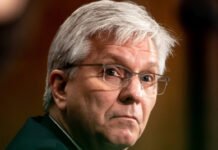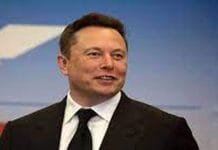Tesla and SpaceX CEO Elon Musk has issued a scathing rebuke of Donald Trump’s proposed tax and spending cut bill, warning that the legislation could result in the loss of millions of jobs and cripple America’s ability to lead in future-facing industries. Musk’s comments come at a critical moment as the Republican-backed bill nears a crucial Senate vote, aimed at passing before Trump’s self-imposed July 4 deadline.
Musk Issues Dire Warning: “Political Suicide” for the GOP
On Saturday, Musk took to his platform, X, to voice strong opposition to the approximately 1,000-page legislation, calling it “political suicide” for the Republican Party. His concerns centered on the bill’s favoritism toward legacy industries and its complete disregard for emerging technologies, including sustainable energy, space exploration, and artificial intelligence.
“This bill benefits old industries and punishes the sectors that will define the future of America. Millions of jobs will be lost, and we will fall behind strategically,” Musk wrote.
Musk’s stark warning carries weight. As one of the most influential entrepreneurs in the world, his opinions ripple through both Wall Street and Washington. With this statement, he positioned himself not just as a tech innovator, but as a key figure in the national economic debate.
Deepening Rift Between Musk and Trump
The confrontation marks a significant downturn in what was once a mutually beneficial relationship. Although Musk financially supported Trump during the 2024 Presidential race, tensions have intensified in recent months. The most public break came when Musk alluded to potential connections between Trump and Jeffrey Epstein, though he later expressed regret, stating that his comments may have “gone over the line.”
Still, the damage appears done. Musk’s latest statements suggest the schism has only widened, especially on policy matters affecting innovation, taxation, and national competitiveness.
Bill Prioritizes Legacy Systems Over Future-Focused Development
Elon Musk’s key criticism lies in how the bill allocates federal funds. According to sources close to the legislation, the tax and spending cut proposal includes massive subsidies for traditional oil, gas, and defense contractors, while slashing funding from departments and initiatives related to:
Electric vehicle infrastructure
Green energy R&D
NASA and private space collaborations
AI and automation investments
STEM education and training programs
Musk emphasized that such a strategy would stifle American innovation, leaving industries like EV manufacturing and private space exploration to be overtaken by international competitors, particularly China and the EU.
Economic Impact: Millions of Jobs at Stake
Industry experts echo Musk’s concern. Analysts estimate that if the bill becomes law in its current form, the U.S. could lose between 1.2 to 2.5 million jobs over the next five years, especially in sectors like:
Clean energy and battery tech
Software and AI startups
Robotics and advanced manufacturing
Aerospace innovation
By withdrawing federal support and tax incentives from these industries, the bill could trigger a domino effect of layoffs, outsourcing, and capital flight, severely undermining the country’s long-term economic health.
Musk Labels the Bill a ‘Strategic Disaster’
Musk didn’t hold back in labeling the proposed legislation a “strategic disaster.” Beyond job losses, he argued that the bill will hand the competitive edge to rival nations, particularly China, which continues to aggressively invest in AI, green technology, and space capabilities.
“At a time when the world is accelerating toward sustainable and intelligent solutions, this bill is pulling America backward,” Musk posted.
Senate Showdown Looms: GOP Under Pressure
The bill is currently in the debate phase in the Senate, with top Republicans pushing for a vote before July 4, aligning with Trump’s deadline. Despite growing opposition from moderates and business leaders like Musk, the party remains divided.
Several GOP senators have expressed concerns behind closed doors but have not taken a public stance. Meanwhile, Democratic leaders have vowed to block the bill unless major revisions are made.
White House Remains Silent on Musk’s Remarks
Despite the intensity of Musk’s criticism, there has been no formal response from the White House. President Trump, known for his quick reactions on social media, has not directly addressed Musk’s comments either.
However, insiders suggest that the administration is increasingly wary of Musk’s political influence. Though no longer in a formal advisory role, Musk retains substantial sway, particularly among young entrepreneurs, engineers, and independent voters.
Political Fallout: Will Musk’s Critique Shift the Equation?
Musk’s condemnation could have wider political implications. His enormous following on social media and his past financial backing of Trump-aligned causes give him a unique power to sway public opinion—especially among tech-savvy, economically conservative voters.
If Musk chooses to actively campaign against the bill—or against GOP lawmakers supporting it—it could complicate Republican strategies going into the midterm elections.
Historic Repercussions for the Republican Party
Calling the bill “political suicide”, Musk made it clear that the Republican Party risks alienating a new generation of innovators and entrepreneurs. His critique may resonate deeply with those who see the GOP as increasingly tied to fossil fuels, traditional manufacturing, and short-term gains over long-term progress.
“America cannot lead the 21st century by clinging to the 20th,” Musk wrote. “We need bold policy that supports innovation, not one that punishes it.”
What Comes Next: A Pivotal Moment for U.S. Policy
The coming days will prove crucial. With Senate votes looming and public backlash growing, the fate of Trump’s tax and spending bill remains uncertain. If passed without major changes, the bill could reshape the American economic landscape for decades to come.
But with powerful voices like Elon Musk standing in opposition, it is clear that the debate is far from over. At stake is nothing less than the future direction of the U.S. economy, its workforce, and its global standing.
As the Senate prepares for what promises to be a contentious vote, the country watches—aware that this is not just another bill, but a defining moment for the American innovation economy.
















